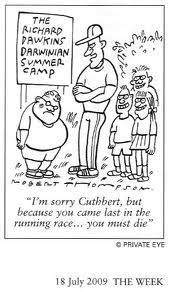By Charles Foster
Y chromosomes are on the way out, thinks Aarathi Prasad, a geneticist from Imperial College, London: they’re degenerating. If they go, then so do humans – unless an alternative method of reproduction can be devised. It can, says Prasad. In fact the basic technology is already here, and is bound to get better. In 2004 a mouse was conceived using synthetic sperm made by modifying ova. Technological virgin birth (I’ll call it TVB) might be the salvation of the human race.
This is all very interesting. But Prasad isn’t content merely to describe the science. She seems to think that we ought to drop all our taboos against the idea. ‘By all reasonable estimates, in the near future we will conquer the tyranny of the womb. The question remains if we can also conquer the tyranny of human prejudice….’
It’s not clear from this whether she is advising us to conquer our tyrannous prejudice on simply practical grounds – (because, if we don’t overcome our squeamishness, we won’t develop or embrace the technology, so dooming humanity) or whether she thinks that there is something philosophically wrong with a distaste for TVB. I suspect the latter.
If this suspicion is right, why might she (or anyone else) think that?Read More »How not to save the world


